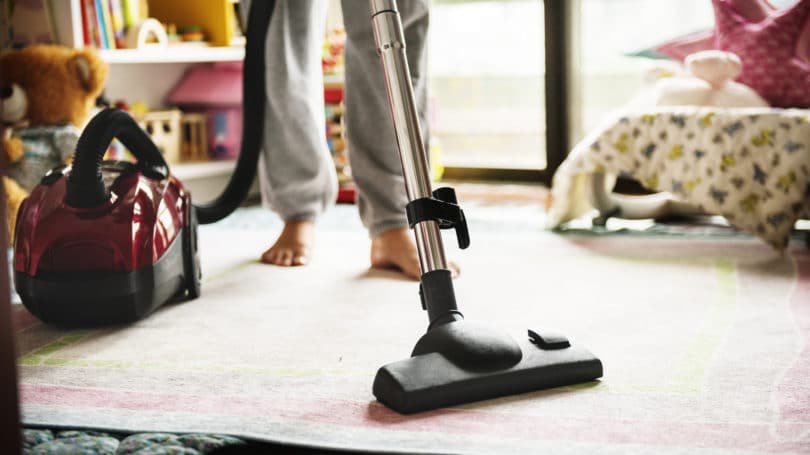4 Issues to Address Before New Tenant Move In
Having a new tenant move into your property can be stressful for both the tenant and landlord. Having a checklist of items that must be addressed before the tenant moves in can help make the transition easier and ensure you do not miss any important steps. Here are ten things you should address prior to having a new tenant move into your rental.
Clean the Property
Cleaning is especially important if you are doing an apartment turnover, which means there was a previous tenant living in the unit. You will want to make sure the unit is thoroughly cleaned, especially areas such as the tub, toilet, stove, and refrigerator. Vacuum or sweep to remove any additional debris.
You should also have the property exterminated before tenant move-in even if there is no noticeable problem.
Look for Issues With Heat, Plumbing or Electrical
Before a tenant moves in, you must make sure all utilities are working. You will want to make sure the heat works in all rooms, that there are no clogs or leaks in the plumbing and that the outlets and overhead lights in every room are operational. These are necessities that a tenant needs to maintain their quality of life.
Review and Sign Lease With Tenant
You should go over the lease agreement with the tenant section by section so that they completely understand what they are agreeing to. Once you have gone over the entire agreement with the tenant and answered any questions, you and the tenant should sign and date the lease agreement.
Have Necessary Property Inspections Completed
Depending on your town’s laws, the unit may have to be inspected by a home inspector before a tenant can move in. This inspection is done so the town can issue you a Certificate of Habitability. Some towns only require this inspection the first time the unit is rented, some towns require it every five years and some require it every time a new tenant moves into the unit. Make sure you know your town’s rules.

Moving In – Understand The Terms Of The Lease
- When you are renting an apartment, both you and your landlord have created a relationship in good faith. You must get the name, address and phone number of your landlord. If the person you are dealing with is a manager, make sure you know her/his name, address and phone number and find out who owns the property. Get their name and phone number as well.
- Make sure you know what your rent is, where to pay it, and where to contact your landlord for repairs or problems.
- You will probably be required to pay a security or damage deposit with the first month’s rent. THE DEPOSIT IS NOT RENT. If you have a written lease, it will generally state what your deposit will cover. If you don’t understand the terms, ask the manager to explain them clearly.
- Ask the manager outright – “How much is usually deducted from the deposit upon move-out?” Surprisingly, they will usually tell you – if they do, have them write the amount on the lease and initial it.

Apartment Cleaning Checklist for Before You Unpack
You’ve been thinking about how great your mid-century modern coffee table is going to look in your new apartment since you saw the rental listing.
But here’s a hot tip before you go charging in with all your belongings: Your new apartment will never be easier to clean than when you’re holding the keys for the first time. Take advantage of the empty space and follow this easy cleaning checklist to make your place a tidy home for youself—and all your beloved stuff.
1. Start from the top.
When it comes to giving your new home a deep scrub, it’s best to clean each room from the top down. Because, gravity. Start by dusting the ceiling fan, ceiling corners, and overhead lights. (Globe-shaped light figures are notorious for collecting dust, so be sure to give them a good clean.) Then start working your way down—walls, baseboards, and finally, the floors.
2. Work toward the door.
Here’s another way to order your cleaning in a room: Start at the farthest point from the entryway. This is especially important when it comes to floors. You don’t want to trod over freshly-vacuumed carpet in your dusty house-cleaning shoes!
3. Deep clean the closets.
Once the closets are full of your odds and ends, it’s unlikely you’ll ever take them all back out to clean in there. Dust out the corners, and consider lining shelves with vinyl or decorative paper (just be sure it isn’t permanent). Shelf lining looks good, is easy to clean, and covers up mystery marks and gross stains left by previous tenants. It’s a win-win-win.
4. Replace the toilet seat.
You’re bringing your own recliner and couch, and those aren’t even as hard to keep clean. You’ll spend a lot of time sitting on your apartment’s toilet, and it’s arguably the most important seat in the house. Do yourself (and your guests) a favor by giving your toilet a fresh start.
5. Disinfect the bathtub.
You’re much more likely to enjoy a soak in the tub after you’ve disinfected away all trace of the last person who soaked there. For an easy cleaning hack, use dish soap and a sponge to wipe down the bathtub—though you may need to enlist a more convensional cleaner to fight tougher stains. Prefer a natural method? Equal parts baking soda, borax, and kosher salt make a great cleaning scrub without any impossible-to-pronounce chemicals.
6. Clean your appliances.
Yes, even your dishwasher needs help getting clean. Start by running a cycle with only a cup of white vinegar in the top rack—using the hot water setting if your dishwasher has one. Afterwards, sprinkle a cup of baking soda on the bottom rack and run a second hot cycle.
Disinfect the microwave (inside and out), then hit the fridge. Remove all the shelves you can, and wipe them down—you can even let them soak in the sink or bathtub. A solution of vinegar and water works great as a food-safe, all-purpose cleaner.

What happens if my Full Security Deposit is not returned?
You have moved out of your old apartment or rental house and are settling into your new place when part of your old security deposit shows up with no explanation for the deductions. What are you to do?
In many jurisdictions, if a landlord does not return all of your security deposit, or returns a portion of the security deposit without a written explanation of everything that was deducted for you may be able to sue. In California, for example, the landlord must provide receipts for any repairs or cleaning over $126. This action, allowed by security deposit laws, is generally called a Wrongful Withholding of Security Deposit or a Wrongful Retention of Security Deposit lawsuit. If you do decide to take legal action, you may be able to recover all or some of your security deposit.
Take Precautions Along the Way
In addition to the recommendations above, there are other tips and tricks to keep in mind throughout the term of your lease. Taking these small steps can make moving out and getting your security deposit back that much easier.
- Move-In Inspection. Ask your landlord to inspect the apartment with you before you move in. While doing the walk-through, keep a list of any damages you notice. Inspect everything from top to bottom, including inside the drawers, cabinets, and closets. Have your landlord sign off on your damages list. If the landlord makes any promises to repair major damage you notice, get the promise in writing. Keep a copy of both documents so you can use them to prove pre-existing damage, if necessary, when you move out.
- Take Photos. Before you move in your furniture, take clear photos of every room with a date stamp, including inside the closets as well as outside areas, such as balconies. If any damage exists, take close-up photos as well. A visual will help prove pre-existing damage should the landlord try to take it out of your deposit.
- Move in Carefully. Take care when moving your furniture in for the first time and when rearranging pieces later. Bulky items can scratch floors, rip paint off of walls, and ding door jambs. Add pads underneath chair legs to keep them from scratching the floor when you move chairs in, out, or around.
- Read the Lease Before You Make Changes. Some landlords will allow you to paint, while others request you don’t even use small nails in the walls. A change you might consider minor may be prohibited by your lease. If you want to make major changes, such as painting a room a new color, get the landlord’s permission in writing before you do so as it will help avoid a conflict later on.